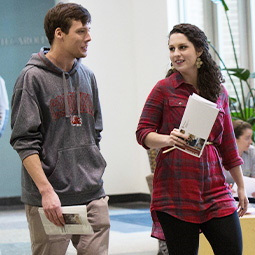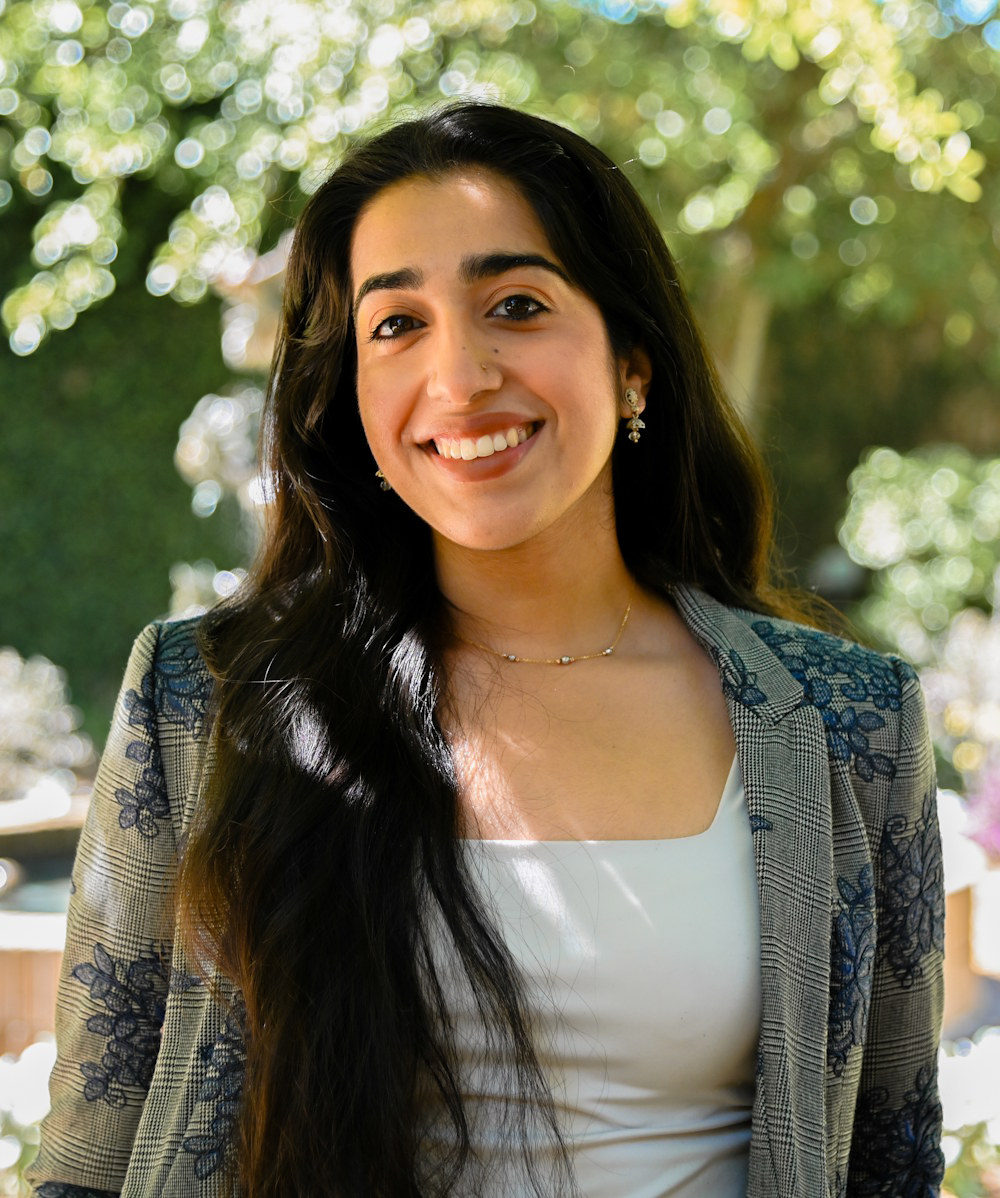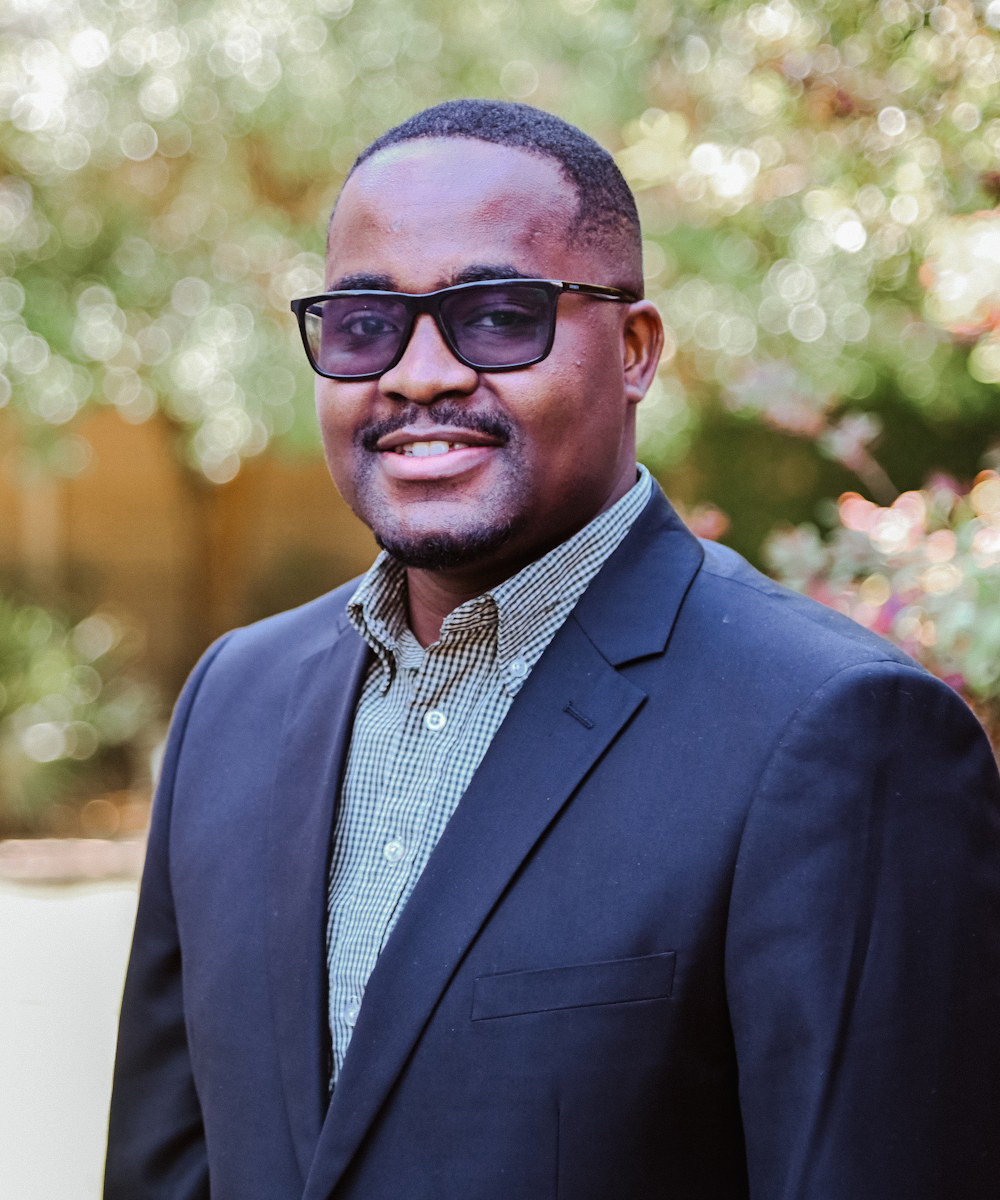
Study Public Health
The Bachelor of Arts (B.A.) curriculum is for students who want to apply the degree to social and behavioral sciences, while the Bachelor of Science (B.S.) is for students who are interested in a broad-based natural science.
April 24, 2025 | Erin Bluvas, bluvase@sc.edu
Arnold School members scooped up both of the student awards given out at the South Carolina Public Health Association’s annual meeting in March. Public health major Muskaan Makkar has been awarded the SCPHA Public Health Scholarship, and epidemiology doctoral student Penias Tembo received the Malcom U. Dantzler Scholarship.

Originally from Summerville, Makkar is an Honors College (No. 1 among public universities) student and Stamps Scholar who is interested in public health nutrition, including food policy, nutritional epidemiology, health equity, and health transparency. She became interested in these areas while participating in a Global Health and Developmental Policy program with the School of International Training in Geneva, Switzerland.
During her study abroad semester, Makkar completed a research project on front-of-package-labeling. As part of this work, she interviewed Arnold School health promotion, education, and behavior professor Jim Thrasher, whom she ended up working with on research projects after her return to the U.S. She also connected with Chantal Julia, a professor with Sorbonne Paris Nord University, where Makkar is currently a semi-finalist for Fulbright France.
As she approaches graduation next month, Makkar is wrapping up her own research project and preparing a manuscript as first author. Her many accomplishments made her the obvious choice for the SCPHA Public Health Scholarship, which is given to only one undergraduate student in the entire state. She is also the recipient of the Outstanding Public Health Student Award, USC Outstanding Senior Award, and President's Award.
“This award is a culmination of almost four years of hard work and applying knowledge more than I ever thought possible,” says Makkar, who plans to continue her research and training by earning a Master of Public Health and becoming a registered dietitian specializing in public health nutrition. “The academic opportunities at USC have been stellar, but what has made my experience here incomparably beautiful are the people I have met along the way. I have friends who see me for more than my accomplishments, and we are building each other up rather than competing against each other. It is the mentors that trust me with more than the bare minimum, and who push me to be confident in my capabilities because their belief in me is so strong.”

Tembo is also interested in nutrition, particularly how diet can prevent chronic diseases. His focus includes chrono-nutrition – the study of how meal timing affects the body’s daily rhythms – which he applies to cancer research to understand how irregular meal timing may increase cancer risk.
With these interests in mind, Tembo works closely with researchers at USC’s Cancer Prevention and Control Program, where he is a graduate assistant and has found several mentors. One of these mentors, James Hébert, is the reason Tembo came to the Arnold School. After training as a physician in Zambia, Tembo was a master’s student studying global health in Norway when a global nutrition class sparked his interest in how to effectively measure diet quality. His exploration into the topic led him to discover Hébert’s work on the Dietary Inflammatory Index, and the rest is history.
The Malcom U. Dantzler Scholarship is Tembo’s ninth award since arriving at the Arnold School in 2023. He is also a Grace Jordan McFadden Professors Program Fellow, student co- chair of the Arnold School’s Access to Collective Engagement Fellowship and a member of the Youth Advisory Board for the Colorectal Cancer Prevention Network.
After graduating in 2027, Tembo plans to continue his training with a postdoctoral fellowship in nutrition and cancer with an emphasis on chrono-nutrition. His advice to future students includes finding a mentor with overlapping research interests. He also says that prospective students should not be discouraged if they don’t have a background in epidemiology.
“One of the strengths of the epidemiology doctoral program at USC program is the flexibility it offers to students from diverse academic backgrounds,” he says. “You’ll have the opportunity to take foundational courses that will equip you with the core epidemiologic and biostatistical knowledge needed to succeed in advanced coursework and research. The program also fosters a strong sense of community and diversity. With a good mix of both local and international students, you’ll find a welcoming and supportive environment.”

The Bachelor of Arts (B.A.) curriculum is for students who want to apply the degree to social and behavioral sciences, while the Bachelor of Science (B.S.) is for students who are interested in a broad-based natural science.

Epidemiologists design and conduct investigations aimed at improving the health of groups of people by combining knowledge from the social sciences, medicine, biology, the environment, and statistics.